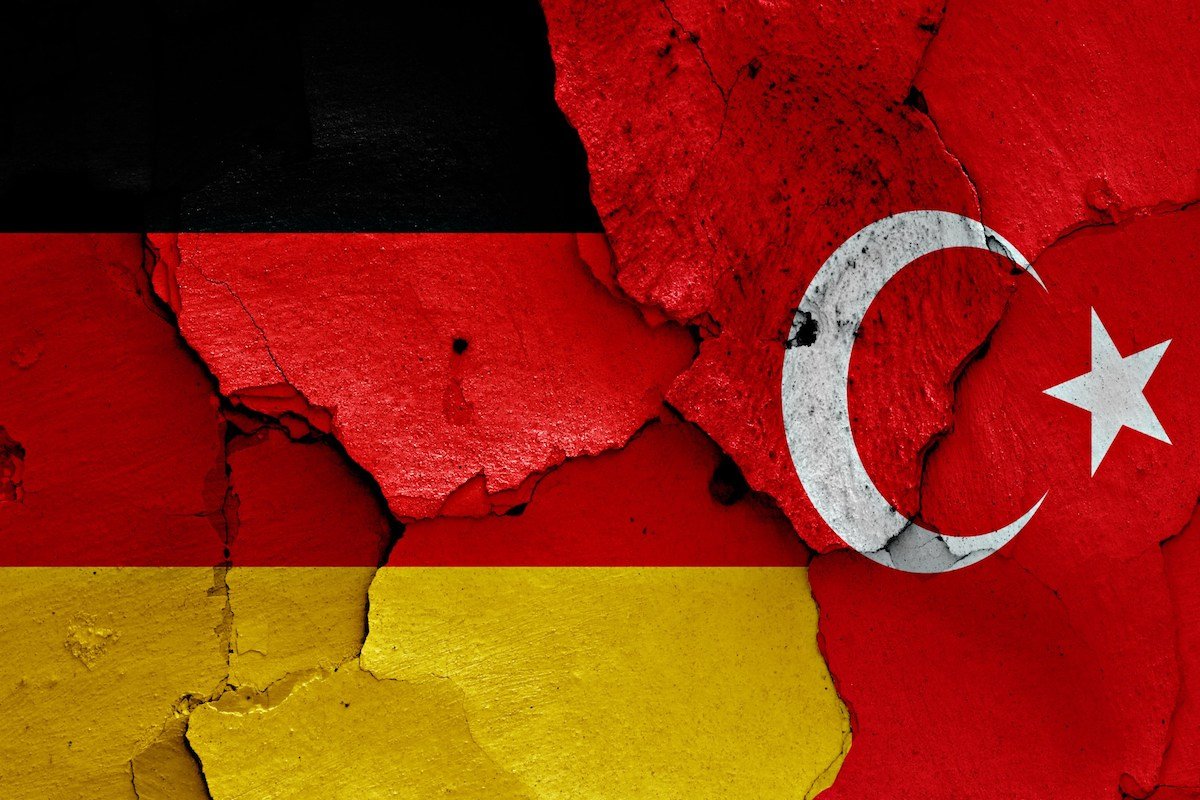The German government has ramped up its policy of appeasing the Turkish government led by President Recep Tayyip Erdoğan despite massive post-coup violations of human rights.
Michael Roth, Germany’s minister for the European Union, stated on Tuesday that the EU should not stop its accession talks with Turkey despite a lack of progress and questions about the rule of law in the country.
“It is in the hands of those responsible in Turkey to decide whether they want to be a member of this European community of values,” Roth said upon arrival at a meeting of EU ministers in Luxembourg. “I would suggest we do not slam the door shut. That would be a wrong signal toward those in Turkey who still long for European values,” he added.
But Austria’s EU Minister Gernot Bluemel said the talks should be halted. “We don’t believe Turkey should become a part of the European Union,” Bluemel said.
The European Commission is expected to release on Tuesday its most critical report yet on Turkey since the country launched its bid to join the EU over a decade ago. The commission is expected to warn that Turkey is taking “major steps” in the wrong direction when it publishes its latest progress report on prospective EU member states, warning that years of progress are being lost.
According to the report, the first excerpts of which were published Sunday by German weekly Welt am Sonntag, Ankara has “suffered serious relapses in the areas of justice, rule of law, fundamental rights and freedom of expression.”
The commission will ultimately conclude that there is no basis for advancing membership talks with Ankara, effectively keeping talks on hold. “There is massive backsliding away from the European Union,” one EU official told the Reuters news agency, which also confirmed the contents of the upcoming country report.
The draft report also states that under the current circumstances, there are no plans to open new accession negotiation chapters with Turkey, adding that “above all, Turkey needs to reverse the current negative trend in the rule of law and fundamental rights” and “the weakening of an effective separation of powers in the political system should be addressed.”
The EU will also tell Turkey that lifting its state of emergency is a requirement to any future progress in its accession talks. The Erdoğan government imposed emergency rule following a controversial military coup on July 15, 2016. The decree has curtailed the Turkish Parliament’s legislative powers and encroached on civil and political rights. Erdoğan maintains that the state of emergency and sweeping purges are necessary to stem threats to the country’s national security.
Meanwhile, Turkish Energy Minister Berat Albayrak and his German counterpart, Peter Altmaier, have vowed to improve relations between their countries after months-long tensions. Speaking at a joint news conference in Berlin on Monday, Albayrak voiced hope for a new era in relations after Chancellor Angela Merkel formed a new coalition government last month.
“For Turkey, Germany is a very important, indispensable partner,” he said. “As the new government takes office in Germany, Turkey aims to foster a new era in relations that will be more realistic, more rational and benefiting both countries,” he added. Albayrak expressed hope that Turkey and Germany would further enhance their cooperation in the economy, trade and energy sectors.
Altmaier, a close ally of Merkel, underlined the importance of closer cooperation between both countries at a time of growing uncertainty in the Middle East. “Minister Albayrak and I agreed to deepen our cooperation,” he said and highlighted great opportunities for both countries in the areas of environmental policy, climate protection and renewable energy.
Altmaier announced that the Turkey-Germany Energy Forum, a major gathering of energy companies from both countries, will convene in the coming months.
Political relations between Ankara and Berlin suffered several setbacks in recent years, but both sides have taken steps in the recent month towards normalization of ties. EU heavyweight Germany is Turkey’s main economic and trade partner. In 2017, the bilateral trade volume reached €37,6 billion ($46,5 billion). Around 7,150 German companies are currently active in Turkey.
Turkey survived a controversial military coup attempt on July 15, 2016 that killed 249 people. Immediately after the putsch, the Justice and Development Party (AKP) government along with autocratic President Recep Tayyip Erdoğan pinned the blame on the Gülen movement.
Fethullah Gülen, who inspired the movement, strongly denied having any role in the failed coup and called for an international investigation into it, but President Erdoğan — calling the coup attempt “a gift from God” — and the government initiated a widespread purge aimed at cleansing sympathizers of the movement from within state institutions, dehumanizing its popular figures and putting them in custody.
Turkey has suspended or dismissed more than 150,000 judges, teachers, police and other civil servants since July 2016. Turkey’s interior minister announced on December 12, 2017 that 55,665 people have been arrested. On December 13, the Justice Ministry announced that 169,013 people have been the subject of legal proceedings on coup charges since the failed coup.
A total of 48,305 people were arrested by courts across Turkey in 2017 over their alleged links to the Gülen movement, Interior Minister Süleyman Soylu said on Dec. 2, 2017. “The number of detentions is nearly three times higher,” Soylu told a security meeting in İstanbul and claimed that “even these figures are not enough to reveal the severity of the issue.”

















[…] Source link […]
[…] Source link […]